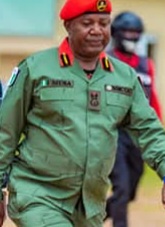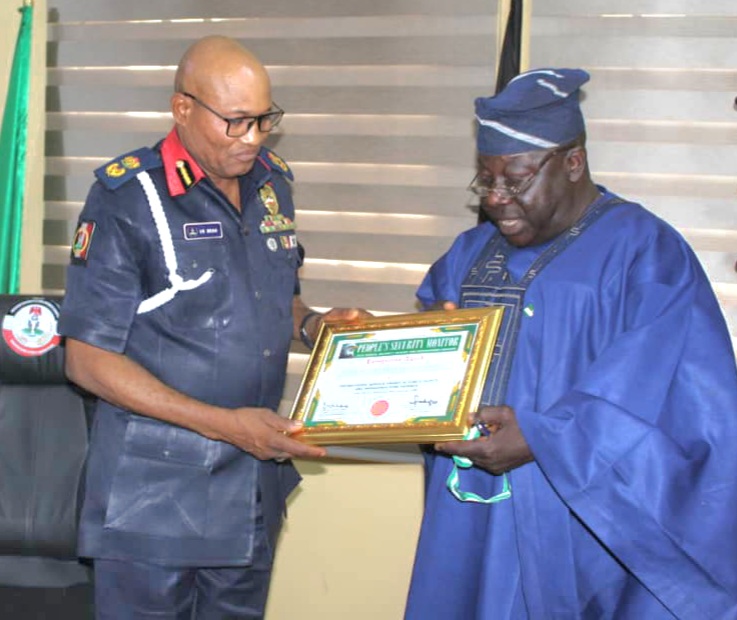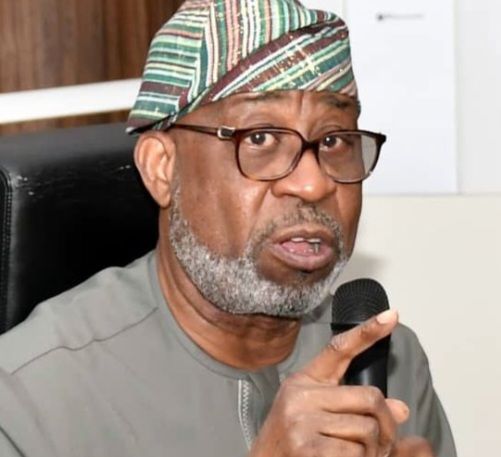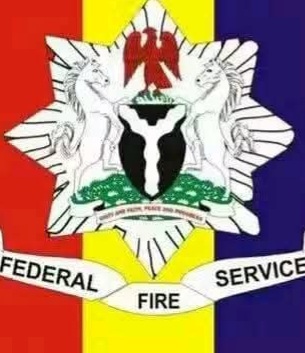
By Isiaka Mustapha, CEO/Editor-in-Chief, People’s Security Monitor
For many years, Plateau State, famous for its beautiful landscapes and rich farmlands—has struggled with serious security problems. These include ethnic tensions, clashes between farmers and herders, bandit attacks, and communal violence. As a result, peaceful farmlands have often turned into conflict zones. In this kind of situation, protecting agriculture is not just about the economy; it’s also crucial for keeping the country stable.
At the forefront of efforts to restore order to this embattled landscape stands Commandant Ishaku Musa, the Nigeria Security and Civil Defence Corps (NSCDC) helmsman in Plateau State. Since his assumption of office, Commandant Musa has spearheaded a silent but strategic revolution of reactivation and revitalization of the NSCDC Agro Rangers, a unit originally designed to safeguard Nigeria’s agricultural sector from armed threats but which, over the years, had lost momentum in parts of the country.
When Musa took over the command, what he met was a skeletal Agro Ranger formation, understaffed, under-equipped, and overstretched. Many operatives were demoralised, with poor deployment strategies and waning community trust. The unit, which was meant to serve as the security bridge between rural farmers and their safety, had become reactive at best, and in many instances, simply invisible. Farms were being deserted. Harvests were plummeting. The once-thriving agricultural economy of Plateau State was inching toward paralysis.
Understanding how important agricultural security is to the overall stability of the state, Commandant Musa launched a broad, long-term strategy to not just revive the Agro Rangers, but to turn them into a strong, trustworthy, and community-based force. He began by restructuring the unit, putting in place a proper command system, clear rules of engagement, and well-defined roles. Using data to identify conflict-prone areas, especially in Bokkos, Mangu, Riyom, and Barkin Ladi he positioned officers in the most vulnerable locations, closing security gaps that had previously been exploited for attacks.
But logistics and strategy alone were not enough. Musa understood that to reenergise the Agro Rangers, he needed to win their hearts and minds. He overhauled welfare provisions, ensured allowances were paid on time, improved field accommodation, and most importantly, made leadership visible on the ground. His visits to remote outposts served dual purposes: boosting morale and collecting frontline intelligence directly from the officers who interface daily with farmers and rural dwellers.
Alongside these efforts, Commandant Musa introduced regular training and retraining programmes. In partnership with other security agencies and NGOs focused on peacebuilding, Agro Rangers were trained in modern rural conflict response, intelligence gathering, civilian engagement, and de-escalation tactics. Musa’s goal was to turn them from passive responders into proactive protectors and ultimately, into stabilising agents within rural communities.
Perhaps the most impactful part of his reform was the integration of local stakeholders into the Agro Rangers’ operating model. Traditional rulers, community elders, farmer cooperatives, and herder associations were brought to the table. Dialogue replaced suspicion. Intelligence flows began to move organically. Communities that once distrusted uniformed officers began to see the Agro Rangers not as an occupying force, but as partners in peace. In certain high-risk communities, Agro Rangers now hold joint patrols with local vigilantes and convene weekly dialogue sessions with youth leaders.
The results have been telling. Across many parts of Plateau State, farmlands once left fallow out of fear are now being cultivated again. Insecurity, while not completely eradicated, has significantly reduced in areas with strong Agro Ranger presence. Incidents of armed invasion of farms during planting or harvest season have dropped, and farmers have begun returning to their homesteads with renewed confidence. Even markets, which previously had to shut down due to threats of violence, are reopening.
Commandant Musa’s strategy has also had ripple effects beyond agriculture. In many communities, the restoration of security has led to the revival of schools, health centres, and trade routes. A secured rural economy has triggered renewed investment in Plateau’s agricultural value chains, especially in crops like Irish potatoes, maize, vegetables, and grains.
But Musa’s vision doesn’t end here. He is pushing for expanded federal support for Agro Ranger operations—requesting additional vehicles, surveillance equipment, and operational funding to extend the reach of the Rangers. He has also submitted a proposal for a state-backed Rural Security Coordination Framework, a masterplan that would formalise collaboration among NSCDC, the Police, local vigilantes, and communities in safeguarding farms and rural institutions.
What sets Commandant Musa apart is not just his administrative discipline or operational innovation; it is his deep understanding of Plateau’s socio-political terrain. He recognises that insecurity on the Plateau is not merely a criminal problem but a deeply rooted, historically sensitive issue shaped by identity, access to land, climate change, and mistrust. His approach has therefore combined hard security with soft engagement, arming his men with both rifles and empathy.
As Nigeria grapples with food inflation, internal displacement, and dwindling agricultural output, the role of Agro Rangers in stabilising rural zones cannot be overstated. In Plateau State, that role is being redefined under Commandant Ishaku Musa. His leadership has restored purpose to a neglected unit, peace to frightened communities, and hope to a state long caught in the grip of conflict.





